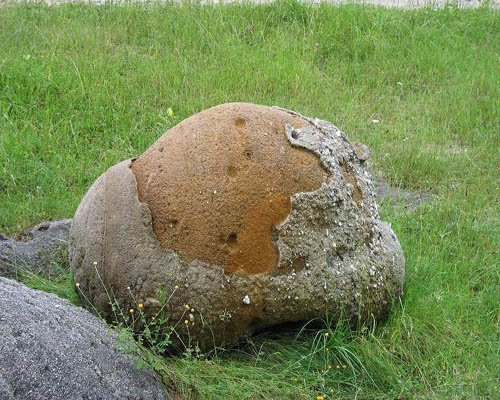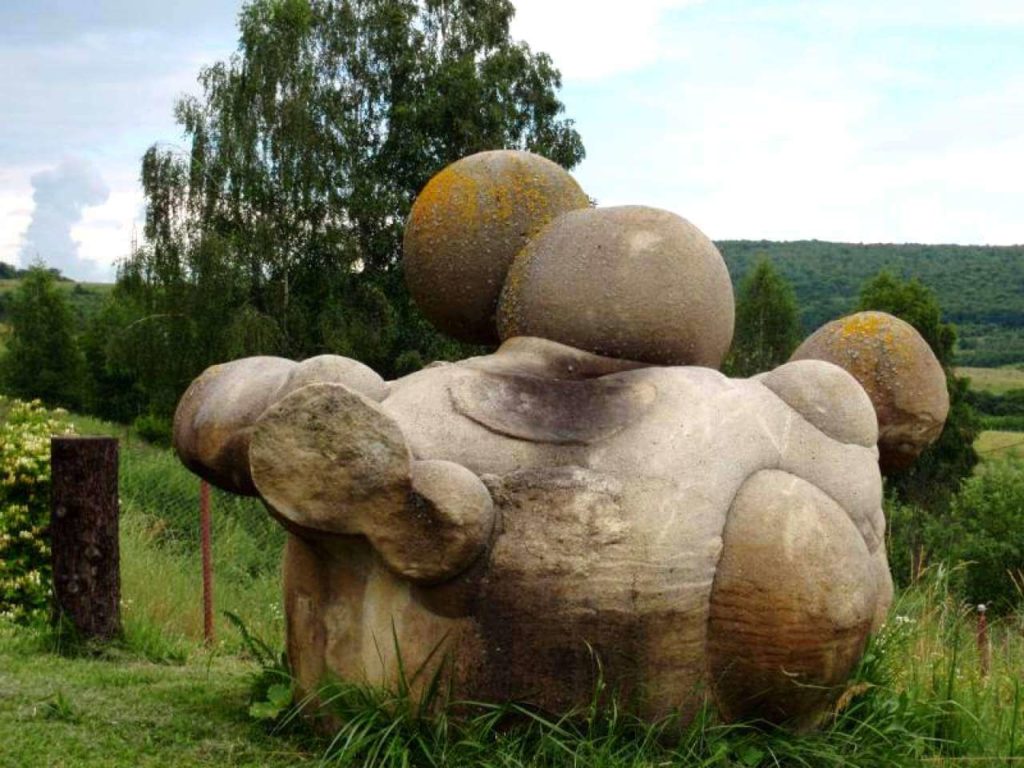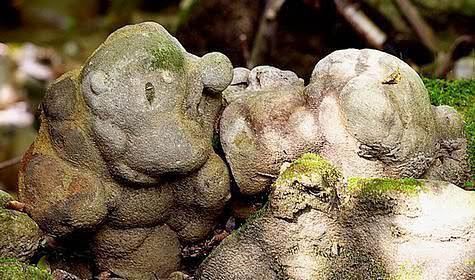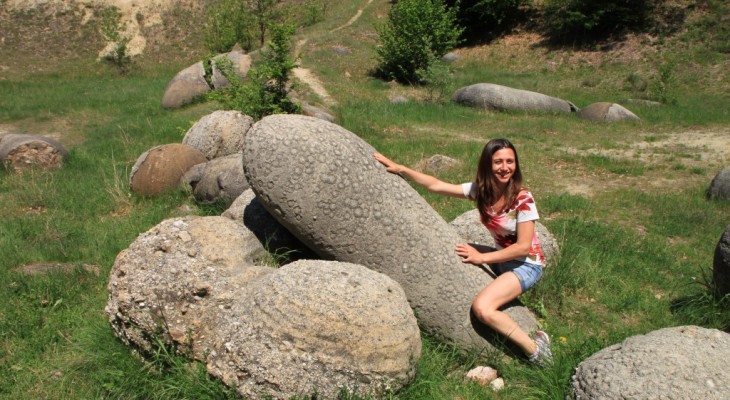Romania known for the rich medieval history is surrounded by authentic castles and is surrounded by undisturbed forest, which makes it one of the most desired places by nature-lovers. One such nature destination is Costesti where stones quite literally grow by themselves, and they are popularly called growing stones of Romania.
For someone, it is difficult to imagine how rocks can grow, naturally but look at them! They are growing it seems like they are living!

Romanian Trovants Museum of Natural Reserve is located in Valcea County, which is close to the road connecting the Ramnicu Valcea and Targu Jiu and is 8 km far from Horezu. Here is a small village called Costesti, where you will find fascinating and mysterious rocks named trovants, and they are believed to have life.
After this pandemic gets over and you are done binge-watching movies or developing your favorite hobbies, you must visit this place!
There you can find sand or grass levels with them in many places. Still, the ones who are in the region of Costesti are impressive! As there is diversity in their shapes and measurements.
SCIENCE BEHIND GROWING STONES OF ROMANIA
They – significantly represent quite a bizarre geological phenomenon, which consists of spherical shapes of cemented sand due to some potent seismic activity that occurred 6 million years ago. They have a strong core, but their shells are made of granules. Scientifically these giant rocks are sandstone concretions, and they achieve the weird forms is an irregular secretion of cement.
But Geologists argue that they are the result of a cementation process that occurred millions of years ago in this region. The earthquakes have contributed towards the creation of them. It is entirely assumed they consist of a core with the strands on the outer shells. Now you must be wondering what makes these formations unique and mysterious? This is because they are reproducing after they come in contact with water. After heavy raining, they grow to start with 6-8 millimeters and ending with 6-10 meters.

In the year 2006, a museum (Muzeul Trovantilor) was built in Costesti, a village in the Valcea to host some of these remarkable pieces. Within the walls and outside of this museum, visitors can see them in different shapes and sizes. Besides, just like the famous rocks located in the Death Valley of California, show movements. They move from one place to another! Often you can find complex aggregates of the two or more of them. However, there is no mineralogical difference between the strange pseudo concretions and the surrounding strands.
Their cement is carbonate-type, and no distinct nucleus can be found inside them. There have been many hypotheses about their origin. However, according to scientists, they increase in size because of the mixture of high content mineral salts, which are present under their outer shell. When the outer surface becomes wet, the chemicals that are present start spreading and they start putting pressure on the sand, which actually makes them “grow.”
HOW WERE GROWING STONES OF ROMANIA FORMED?
Growing stones in Romania were formed due to the process that basically involved: the gravitation force, solution cohesion forces (particularly surface tension), seismic shocks, another reason is the adhesion strength between the liquid and granules.

The great rocks that are found in the thick beds reflect enormous primary amounts of solutions in the vast bulk of sediment. The perfect spherical shapes of the rock, which sometimes can be found, suggest significant magnitudes and the durations of paleo earthquakes.
On Earth, they are not at all in the UK, but from different ages, they have been recorded in Russia, Wyoming, and Siberia. Few of them can also be found in the Carpathians area.
You may also check out the Illusion of the human brain








